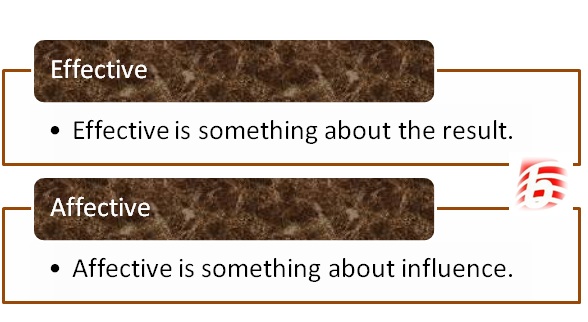Effective vs Affective
Understanding the distinction between effective and affective is crucial when determining their proper usage. Many people mistakenly use these two terms interchangeably, but there is a significant difference in meaning and connotation between them. Linguistically, effective is primarily an adjective, although it is occasionally used as a noun as well. In contrast, affective is exclusively an adjective, with derived words being affectively and affectivity.
Meaning of Effective
Effective pertains to the outcome or result of something. As defined by the Oxford English dictionary, it means “successful in producing a desired or intended result.” The term effective alludes to the nature or efficacy of the result. Consider the following examples:
– The medicine was very effective.
– They were happy about finding an effective solution for the pollution.
In the first sentence, effective refers to the medicine’s efficacy in treating a disease or ailment. In the second sentence, effective is used as an adjective to describe a successful solution to pollution. The term effective implies a guarantee of results, and the power it suggests is sufficient to cause change. It is essential to use the word effective carefully and precisely.
Meaning of Affective
Conversely, affective concerns the influence of something. The Oxford English dictionary defines affective as “relating to moods, feelings, and attitudes.” The following sentence illustrates this meaning:
– Plague is an affective disease.
In this example, affective indicates that the plague can influence and infect others in close proximity to an infected person. While affective implies influence, it does not guarantee results. The influence suggested by affective may or may not be sufficient to cause change.
Difference between Effective and Affective
- Effective refers to the result or outcome, whereas affective pertains to influence.
- Affective is used to describe something as infectious, while effective does not have this connotation.
- The power indicated by the word effective is sufficient to cause change, but the influence suggested by affective may not be enough to create change.
